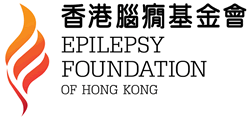People who are being treated by physician, such as taking anti-epileptic drug treatment, experience breakthrough seizure attack, as long as the people around them can provide appropriate support, it is not necessary to go to the hospital or emergency department during/after each attack. However, if the epilepsy does not stop, or if the seizure lasts for a long time, it is a different matter.
You are a patient or family member of epilepsy
Please share the following information with your family and friends to let them know how to help when you have a seizure.
You are not a patient with epilepsy or a family member
Please read the following information carefully to master a proper way to help persons with epileptic seizures.
Have a big seizure (generalized tonic clonic seizure)
- Help the person to lie down. Most attack will be aborted spontaneously and recover slowly.
- If the patient is in dangerous, such as close to burning objects, close to the road or close to the power source, the patient needs to be moved away from the dangerous situation to ensure safety.
- After the convulsion, let the patient lie on his side and loosen the clothing on his neck to help breathing properly and avoid suffocation.
- Place a soft object under the patient’s head to avoid head injury during convulsive movement.
- Ask the onlookers to spread out and maintain good air circulation.
Notice
- If the patient is not breathing properly, pay attention to whether he has vomitus, dentures, or saliva choking his throat.
- The patient may be confused after the attack, so it is best to accompany the patient until he is awake.
- Check whether he has a medical record or a seizure diary with him.
- If the patient is fully awake within a short period of time, there is no need to call an ambulance.
- If the patient does not regain consciousness after 15 minutes, has difficulty breathing, injured, OR IF YOU ARE IN DOUBT, the patient should be sent to the hospital for treatment immediately.
Never
- Do not give the patient any drink or food immediately because he may feel nauseous.
- Given additional anti-epileptic drugs is probably not necessary.
Encountered a localized seizure
Localized seizures are usually not easy to detect.
Notice
- If the patient is in a dangerous situation, such as walking out of the road unconsciously, he should be stopped immediately and guided to a safe place under safe conditions.
- The patient may lose consciousness and involuntarily during the attack. Recording the attack situation and time for him will help him follow up and manage the condition.
- The attack usually lasts 1 to 5 minutes. The patient will gradually regain consciousness, accompany him until he is awake, and inform his family members of the attack.
- Patients wake up after a seizure and do not know what happened. Sometimes they may feel headache, fatigue and drowsiness.
Under normal circumstances, there is no need to call an ambulance unless:
- When the seizure is more than 5 minutes, or longer than usual,
- The patient is injured or suspected of being injured
- The patient has diabetes or is pregnant
- First seizure
- You don’t know how to handle or in doubt
Never
- Forcibly put the object into the patient’s mouth
- Give patients medication or food immediately
- Forcibly stop the patient’s convulsions
- Arguing with patients

